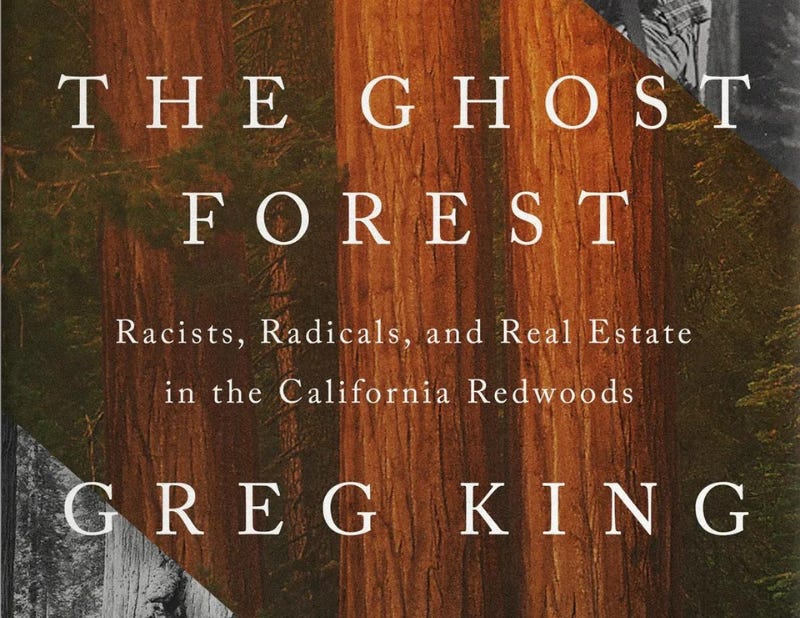This post originally appeared as the second half of another post. I thought it should have its own page.
The most captivating book I have read this year (2023) is Greg King’s The Ghost Forest, a work deeply rooted in archives, both personal and public. Back when I owned Eureka Books, Greg would stop in now and again and talk about his book-in-progress on the redwoods. As the years went by, I started to get concerned.
I shouldn’t have been concerned.
Greg took on the daunting task of retelling the history of the destruction and preservation of the once-great redwood forests of California. The topic is as big as the trees themselves, and while individual pieces of the story have been told, the whole saga has never been successfully attempted before.
The Ghost Forest, subtitled “Racists, Radicals, and Real Estate in the California Redwoods,” combines the King family’s legacy in the timber business, corporate logging histories, a first person memoir of Greg’s Earth First! activism, and a brutal account of the Save the Redwoods League’s intimate connection with the eugenics movement and its collusion with timber companies.
From an antiquarian bookseller’s perspective, I found Greg’s use of archives to be fascinating. By his own count, he copied 10,000 pages from the Save the Redwoods League archives in the Bancroft Library, finding in them smoking gun evidence that for much of its history the conservation group was a greenwashing front for corporate logging interests. Greg also draws from his own personal archive, assembled over many decades of environmental activism, and from that of Judi Bari, the beloved Earth Firster who survived a bombing assassination attempt only to die from cancer.
While in the popular mind, the late 20th century battle to save the last of the old growth redwoods is dominated by protests and tree sits, The Ghost Forest points out that the tree sitters also fought their battles in court, in administrative hearings, and even at shareholders meetings of public companies. They learned all the rules governing logging in California and used them to delay and occasionally thwart the timber companies who were used to rubber-stamp treatment of their plans. Those bureaucratic and legal victories were won by determined activists who read everything and kept it all.
The Ghost Forest is available wherever you get your new books, and if you subscribe to Malcolm Gladwell’s Next Big Idea book club, it’s already coming to you in the mail.




